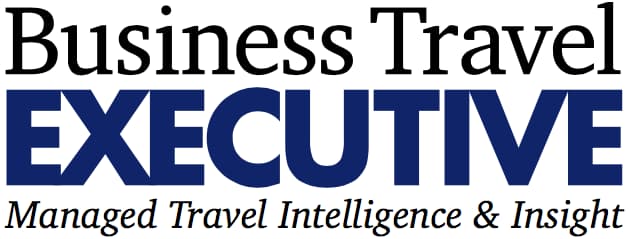Now both of these truths are being turned on their heads. Travelers will spend hours figuring out ways to save their company money on the flights they take. They will shun the negotiated hotel rates and find even better rates on their own. And many companies are embracing the “if you can’t beat ‘em, join ‘em” attitude and letting their travelers find better deals.
So as a smart and diligent corporate travel manager, you could leverage the traveler experience and save your company money! It’s a win-win. But, not so fast. Is all change good?
An Evolution
For many years, corporate travel executives, procurement departments, finance departments, and even management consultants have agreed on one thing: Travel should be more centralized, more controlled and better negotiated. Whether it’s airline, hotel or rental car programs, the systems that support booking and reporting travel expenses, or the corporate cards used to book travel, people have spent careers trying to create a tightly managed travel program.

Yes, there are always adoption issues, exceptions and complexities. Figuring out how best to get travelers to book with preferred vendors, use corporate systems and comply with policies can be like solving a Rubik’s Cube. But a strange thing happened on the way to the “perfect corporate travel program”: Travelers became more informed, got smarter and developed their own ways of doing things “better.”
This traveler intelligence comes from experience. First, travelers care about travel. They care about the vendors utilized, the time spent, the service provided, the options available and the convenience afforded. Second, they have a vast amount of information at their disposal. Within their personal devices (smartphones and tablets), they have more content than your company provides, no matter how much time you spend building robust systems or loading current pricing.
And then an even stranger thing happened: Travelers started saving money by booking on their own. In the history of disagreements between employees and management, 99 percent involve the employee wanting to spend more money. Now, in many cases the traveler wants to save the company money and is told no. Crazy.
So, corporate travel managers continued to push travelers to follow the corporate process. They fell back on reasons such as negotiated rates, data consolidation and rebates, and espoused fancy terms like duty of care and unmanaged travel. But the travelers didn’t listen. Yes, it’s mostly those pesky Generation Ys (and plenty of Xers) who know better than everyone else. They might nod their heads when you tell them to follow a more cumbersome and expensive process, but in the end they will do what they think is best.
And perhaps technology’s biggest impact on behavior is that it has “gamified” the process. Every traveler has the opportunity to “win” by finding a cheaper price. But do we want our travelers playing this game?
The Case For: The case for allowing open booking is simple. It adds traveler flexibility, and can lead to lower costs.
Suppliers and software vendors are adapting to capture and consolidate open booking to put controls in place and address audit and duty of care concerns.
And it’s happening anyway. Travel policy adoption has always been an issue, and now travelers are even less likely to follow a stringent corporate policy. Since technology can support this better process and enhance the traveler experience, any head of corporate travel who wants to be known as a thought leader will embrace this new paradigm.
The Case Against: The case against is actually a bit more complicated. Certainly, there are the often-heard arguments such as “managed is better” or “this is how it’s always been done,” which people have been saying for years. But there are some more-valid arguments.
Most would agree that “change is good.” But is all change good? Let’s use the example of office supplies in your business. For years your company has been using Staples for all its business supply needs. If someone needs a notebook, he either tells someone to order it (from Staples) or gets online and orders it himself (from Staples). No one calls Office Depot to save some money on the notebook, or to find a different color, or to see if it comes with a free pen. In fact, if you saw your employee looking on Office Depot’s site, you might ask why he is wasting his time.
Well, what if I told you that there’s an app that lets you compare prices of notebooks and all other office supplies, and your employees could search for the best deal? In fact, if we could do that with all products and services that each individual consumes, employees could save money on everything. But do you want them spending their entire day saving the company money on $2 notebooks – and not doing their jobs?
The second question to ask is, are the travelers really saving money? How many stories have you heard where the traveler could have used a preferred rate, but went online and booked a higher rate? Probably next to none, because no one would realize it, and if they did they wouldn’t tell that story. But it happens—frequently. And simply comparing rates doesn’t take into account negotiated items such as rebates or amenities (like free WiFi, breakfast or gym fees). Perhaps finding better rates should be left up to corporate travel and procurement, and not each individual traveler doing his own thing.
The third question I’d ask for this debate is, do technology advances like websites, apps and data consolidation mitigate existing booking obstacles and enable a better process with open booking? I certainly believe that technology solutions help address certain gaps with booking, but wouldn’t we be better off closing the gaps than tacitly compensating for them?
Why can’t the existing core tools address the gaps that exist? Why can’t they provide all the information to travelers? Why can’t they incorporate rates outside the negotiated rates? It could be the best of all worlds – a centralized, controlled process, but with all the information and functionality of an open booking environment. Well, existing tools generally can do this. Many of the limitations today are brought on by companies themselves – limiting choices, enforcing policies and configuring their internal tools in a certain way.
Ironically, because the corporate tools often impose restrictions, employees simply go outside the corporate tools to better meet their needs. Wouldn’t it make more sense for companies to ensure their company tools meet their customers’ needs rather than to allow people to use external tools to do so?
Yes, not everything can be done with existing tools. It’s interesting to me, however, that the focus of the industry is not to incorporate additional core functionality into these tools, but rather to put a Band-Aid on the process to ensure traveler non-compliance is incorporated.
The Verdict
Perhaps the fact that the “against” section is many times longer than the “for” section indicates I am against open booking, and in a theoretical sense, that would be right. I am against it for most midsize and large companies, at least until there are other shifts in the travel and technology landscape. In a perfect world, companies would work to ensure that their corporate policy and internally sanctioned tools were smarter, more flexible and capable of supporting the traveler experience.
However, sometimes the winning boxer on the scorecard gets knocked out by the challenger, and I believe that is what’s happening today. The momentum of support toward open booking, traveler experience, devices and apps, and flexibility will knock out the “old-school” thinking surrounding consistency, controls, preferred vendors, and centralization.
So What Do You Do Now?
While there are many divergent views on this issue, I’m sure a good portion of you agree with the “case against” argument. But, what does that mean for you? Do you stand your ground, knowing that open booking will create more problems than it solves, or do you join in the movement toward exciting new technologies?
My advice depends on whether I’m speaking to a C-level executive, a traveler or to you. But since this whole article is for you, I’m giving you permission to be a leader and move forward with open booking during this exciting time. Whether it’s right or wrong, it’s likely going to happen, and most people don’t make careers by only being theoretically correct.
David Kaufman is co-founder, managing partner, and CFO of Acquis Consulting Group. He is a CPA, a Certified Purchasing Card Professional, and holds a Global Travel Professional certification from GBTA. With more than 20 years’ experience in both hands-on and advisory roles, David is a global leader and subject-matter expert in strategy, procurement, compliance, systems implementation, and business intelligence.








